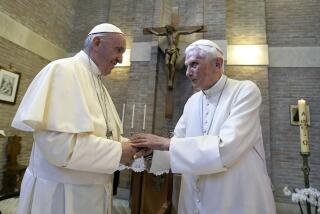China’s PR problem
THERE’S SOMETHING ABOUT the international spotlight that spurs Chinese officials to admit wrongdoing, raising doubts about whether they would have done anything without the glare.
Last month, Beijing waited until 10 days after the incident to tell the public about a factory explosion that dumped 100 tons of benzene and other chemicals into northeastern China’s Songhua River. The announcement came only after dead fish began to surface in the river that -- more to the point -- flows into Russia. A failure to alert Moscow might have prompted a serious diplomatic incident. It was China’s biggest known environmental disaster in years.
This weekend, the government belatedly admitted that police in Dongzhou, not far from Hong Kong, had killed villagers who were protesting the confiscation of their farmland and loss of access to fishing grounds without compensation. The land is to become a site for a wind-generated power plant.
Beijing first stayed silent about last week’s deaths, then admitted them and, a day later, said a police commander had been arrested. That’s warp speed for a government more accustomed to taking weeks or months to decide whether it needs to hold anyone accountable. The galvanizing factor was the World Trade Organization meeting this week in Hong Kong. Residents in the former British colony learned of the Dongzhou protests and publicized them; a coverup would have embarrassed the central government.
The brief announcement from the Guangdong provincial government about the arrest of the commander cited his “wrong actions,” but it did not elaborate. The closed-mouth response shows how far China has to go in opening government actions to public scrutiny. There was also a discrepancy between the government’s death toll (three) and that of the villagers (10 to 20).
China limits access to the Internet, blocking sites it worries will criticize the regime or urge political liberalization. But bloggers abound across the country, and Beijing cannot stifle all news. The government admitted that more than 70,000 demonstrations occurred last year; many were protests against land confiscations.
Chinese leaders say they realize the country’s political progress needs to match its economic advances, but too often their actions don’t match their words. International pressure can help push Beijing in the right direction, but the greater leverage rests with Chinese who are willing to brave police assaults and jail to bring about change.
More to Read
Start your day right
Sign up for Essential California for news, features and recommendations from the L.A. Times and beyond in your inbox six days a week.
You may occasionally receive promotional content from the Los Angeles Times.






